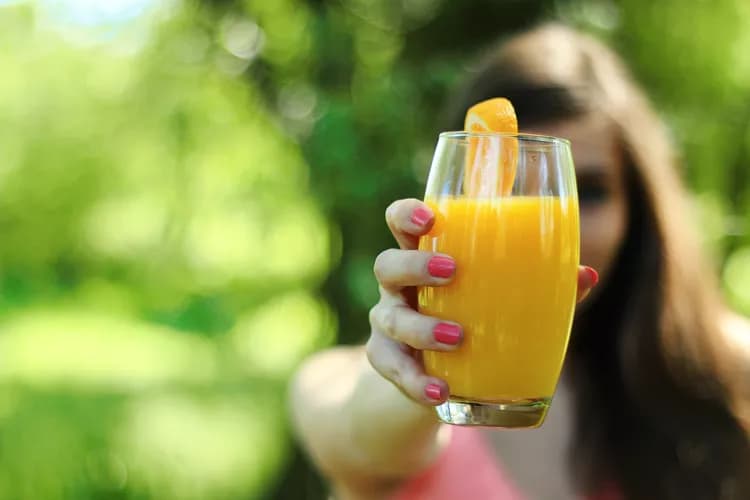Researchers from the University of Liverpool and colleagues from Action on Sugar have assessed the sugar content of over 200 fruit drinks marketed at children and have found them to be "unacceptably high."
The research, conducted by Professor Simon Capewell from the University's Institute of Psychology, Health and Society and Action on Sugar has been published in the online journal BMJ Open.
To assess the sugar content of fruit juice drinks, 100% natural juices, and smoothies marketed specifically to children, the researchers measured the quantity of 'free' sugars in 203 standard portion sizes (200 ml) of UK branded and supermarket own label products, using the pack labelling information provided.
Maximum sugar intake in one drink
'Free' sugars refer to sugars, such as glucose, fructose, sucrose, and table sugar, which are added by the manufacturer, and naturally occurring sugars in honey, syrups, fruit juices and fruit juice concentrates, but not the naturally occurring sugars found in whole fruits and vegetables, which the body metabolises differently and which act to curb energy intake.
The results highlighted wide variations in the amount of free sugars between different types of drink and within the same type of product.
Almost half the products assessed contained at least a child's entire daily recommended maximum sugar intake of 19g or five teaspoons, show the findings.
These come ahead of the publication of the UK government's childhood obesity strategy.
Worst offenders
Of the research Professor Simon Capewell, said: "Increasing public awareness of the detrimental effect sugar sweetened drinks have on kids' teeth and waistlines has prompted many parents to opt for seemingly healthier fruit juice and smoothie alternatives.
"Unfortunately our research shows that these parents have been misled. The sugar content of the fruit drinks, including natural fruit juices and smoothies tested, is unacceptably high. And smoothies are among the worst offenders."
The research also found that the labels on all the products contained a potentially reference intake. It is in line with European law. BUT this figure applies to an average sized active adult woman. So it is wholly inappropriate for children.
Unnecessary amounts of sugar
As a result of the findings, the researchers make several recommendations:
- Fruit juices, juice drinks and smoothies should not count as one of the UK government's '5 a day' recommendations, as is currently the case
- Fruit should preferably be eaten WHOLE, not as juice
- Parents should DILUTE fruit juice with water or opt for unsweetened juices, and only serve these drinks during meals
- Portion sizes should be limited to 150 ml/day (not the current 200ml)
Professor Capewell adds: "Manufacturers should stop adding unnecessary amounts of sugars, and therefore calories, to their fruit drink/juice/smoothie products. Our kids are being harmed for the sake of industry profits. If companies can't slash sugar voluntarily, the government should step in with statutory regulations."
The above post is reprinted from materials provided by University of Liverpool. Note: Materials may be edited for content and length.
Disclaimer: DoveMed is not responsible for the adapted accuracy of news releases posted to DoveMed by contributing universities and institutions.
Primary Resource:
Boulton, J., Hashem, K. M., Jenner, K. H., Lloyd-Williams, F., Bromley, H., & Capewell, S. (2016). How much sugar is hidden in drinks marketed to children? A survey of fruit juices, juice drinks and smoothies. BMJ open,6(3), e010330.
Related Articles
Test Your Knowledge
Asked by users
Related Centers
Related Specialties
Related Physicians
Related Procedures
Related Resources
Join DoveHubs
and connect with fellow professionals


0 Comments
Please log in to post a comment.